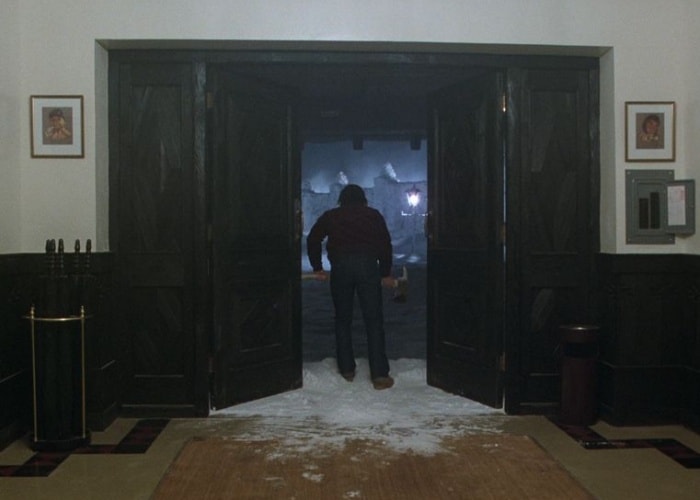
If you want to be very reductive, there are basically two kinds of horror films: physical and psychological. The physical, of which the majority of the genre qualifies, try to frighten the crap out of you for as long as they have you in the seat. This sort of film is characterized by jump scares, graphic violence, gnarly monsters, ample blood and guts, and other such tricks meant to raise hair and coax gooseflesh to the surface. Then there’s the psychological brand of horror, the kind that isn’t content with scaring you just while they have your attention, these films want to scar you, they want to echo in your subconsciousness and ripple through your nightmares, they don’t want to raise bumps on your skin, they want to get under it, they want to get inside you, where they can continue to terrify you for days, weeks, months, years, and even decades after you first see them. A Nightmare on Elm Street, Friday the 13th, Halloween – these are physical horror films. When it comes to psychological horror, Rosemary’s Baby, The Exorcist, and Psycho are the heavy hitters, but ask anyone and likely they’ll tell you the real ringer in this sub-genre is Stanley Kubrick’s The Shining.
If The Shining doesn’t frighten you every single time you see it, then quite frankly you frighten me. It is a (pardon the pun) haunting look at the effects of isolation on mental illness, a visceral exploration of the supernatural, and a vicious battle between a plagued man and his greatest nemesis: himself. The greatest and most terrifying trick The Shining ever played was to bury it’s true monster inside its protagonist, creating a moral gray zone between good and evil which the film constantly circles but can never quite penetrate; Jack Torrance wants desperately to be the former but has too much of the latter in him, so instead ends up unraveled, fractured, and out of his damn mind.
In Stephen King’s novel on which the film is based, the supernatural aspects are cranked up much higher than they are in Kubrick’s adaptation, which is so startlingly different in points of plot and indeed tone that King to this day maintains a very public dislike of the film, mostly based on the fact that he spent more time showing Jack’s devolution into madness than Kubrick did, who King complained made Torrance mad from the get-go. But that, in some regards, is what makes Kubrick’s The Shining so effective: it isn’t about how outside forces manipulate a man into madness, it’s about how a man’s innate madness invites outside forces into his trauma. That makes Kubrick’s film a tea kettle to King’s slow boil of a(n excellent) novel – you know what’s going to happen, this guy’s gonna whistle like crazy, you just don’t know when, so all you can do is watch him get hotter and hotter and wait for the inevitable. King comforts you by making Jack good in the beginning, then takes that comfort away, but always with the promise it could return; Kubrick never offers you a moment’s comfort, not from the first frame to the last, this is not a safe space he has created, hope must be abandoned by all who enter, and that is what makes his The Shining so terrifying: the absence of hope, of reprieve, of salvation.
Just how Kubrick and his co-screenwriter Diane Johnson altered King’s story into their script is the subject of yet another intriguing video essay from Michael Tucker’s Lessons from the Screenplay channel on YouTube. This one was a bit of a beast to wrestle with as Tucker explains in his opening, but the higher fruit is sweetest, they say, and this video would certainly prove his struggle worth the effort. You know you’re watching The Shining this week – Halloween is nigh, people – so be sure to give this a good look before you do, it will only enhance your appreciation of what many consider one of the finest horror films ever committed to celluloid.
